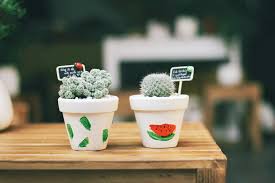
Feng Shui, an ancient Chinese practice that focuses on the flow of energy or Chi, has long been used to enhance various aspects of life, from health and wealth to relationships and personal well-being. When it comes to raising children, the influence of their living environment is undeniable. A harmonious, well-balanced home environment can significantly impact a child’s growth, development, and overall well-being. Feng Shui offers valuable insights into how the arrangement of a home and the use of specific elements can create a nurturing atmosphere that supports a child’s physical, mental, and emotional health.
In this article, we will explore the key Feng Shui elements for raising children, focusing on how parents can design a living space that promotes health, happiness, and success. By implementing Feng Shui principles in the home, parents can enhance their child’s development, foster positive energy, and create a supportive environment for learning, creativity, and emotional balance.
1. The Connection Between Feng Shui and Child Development
Feng Shui is based on the principle that everything in our environment is interconnected, and the energy within a space influences the people who inhabit it. This is particularly important for children, as they are in a crucial stage of physical, emotional, and cognitive development. Children are naturally more sensitive to their surroundings, and their well-being can be significantly affected by the energy in their environment.
A well-organized, balanced, and energetically positive home can promote a child’s health, happiness, and success, while a cluttered or disorganized space can create stress, anxiety, and a lack of focus. In Feng Shui, the goal is to create an environment where the flow of energy supports a child’s growth, creativity, learning, and emotional development. By considering Feng Shui principles when setting up a child’s room or play area, parents can create a space that nurtures their child’s well-being and encourages them to thrive.
2. Key Feng Shui Elements for Raising Children
Several fundamental Feng Shui principles and elements can significantly impact a child’s development. Below are some of the most important aspects to consider when creating a positive environment for raising children.
A. Bedroom Feng Shui: Promoting Restful Sleep and Security
The bedroom is one of the most important spaces in Feng Shui, especially for children, as it is where they sleep, rest, and rejuvenate. Sleep plays a crucial role in a child’s physical growth and cognitive development, and a harmonious bedroom can promote better sleep quality and a sense of security.
- Bed Placement: In Feng Shui, the placement of the bed is essential for ensuring good energy flow and restful sleep. The bed should be placed against a solid wall, preferably with a headboard, as this provides a sense of support and stability. Avoid placing the bed directly under a window or in a position where the child’s feet are facing the door, as this can cause restless sleep and a feeling of vulnerability.
- Bed Size and Comfort: Ensure that the bed is the right size for the child, providing enough space for movement and comfort. The mattress should be supportive, and the bedding should be soft and comfortable to encourage relaxation.
- Soothing Colors: The colors in the bedroom should be calming and gentle. Light, neutral colors such as soft blues, greens, or pinks are ideal for promoting relaxation and peaceful sleep. Avoid using bright, intense colors like red or yellow, which can be overstimulating for children.
- Clutter-Free Environment: A clean and clutter-free bedroom is essential for a child’s mental clarity and emotional balance. Ensure that the room is organized and free from unnecessary items. Clutter can create stagnant energy, leading to stress and anxiety.
- Personalized Space: While simplicity is key, it’s also important for children to feel that their bedroom is a space that reflects their personality. Include their favorite colors, toys, and decorative items, but avoid overcrowding the room with too many possessions.
B. The Role of the Playroom in Feng Shui
A playroom or activity area is a space where children spend a significant amount of time, and it’s essential that it fosters creativity, learning, and fun. Feng Shui emphasizes the importance of balance and harmony in play areas to encourage positive energy and developmental growth.
- Toys and Games: Keep toys and games organized and easily accessible. Clutter in the playroom can cause frustration and prevent a child from focusing. Use bins or storage units to keep toys neat and tidy.
- Natural Elements: Incorporating natural elements such as plants, wooden toys, or artwork featuring nature can bring a sense of calm and grounding to the playroom. Plants, in particular, are believed to promote growth and healing, making them ideal for a child’s development.
- Color and Light: Bright, vibrant colors can stimulate creativity and energy in the playroom. However, ensure that the colors are balanced and not overwhelming. Yellow, green, and blue are great colors for stimulating creativity and focus. Adequate natural light should be incorporated into the room, as it supports physical health and well-being.
C. The Importance of the Family Room: Fostering Strong Relationships
The family room is where family members come together to bond, relax, and communicate. In Feng Shui, this space is vital for fostering strong relationships and creating a sense of unity and warmth. A balanced family room can provide children with a sense of belonging and security, which is crucial for their emotional development.
- Furniture Arrangement: Arrange the furniture in a circular or square layout to create a sense of unity and openness. Avoid placing furniture in a way that obstructs pathways or creates feelings of separation. Ensure that seating areas are comfortable and conducive to conversation and connection.
- Symbolism of Love and Unity: To encourage strong family bonds, incorporate symbols of love, unity, and happiness in the family room. Heart-shaped objects, family photos, or artwork depicting togetherness can strengthen the emotional connections within the family.
D. Enhancing the Wealth and Abundance Area
In Feng Shui, the wealth and abundance area of the home is associated with prosperity, success, and good fortune. While this area is often focused on material wealth, it also relates to the richness of life experiences, including personal growth, learning, and health. For children, creating an abundant environment can support their development and encourage success in various aspects of life.
- Location: The wealth and abundance area is typically located in the southeast corner of the home, according to the Bagua map. Consider placing objects in this area that symbolize growth, success, and abundance, such as books, plants, or items that encourage learning and creativity.
- Fostering Learning: Including educational materials like books, puzzles, or games that encourage problem-solving can enhance the abundance area and support a child’s intellectual development.
E. Safety and Comfort in the Home
Safety is a primary concern for children, and Feng Shui emphasizes the importance of creating a secure environment where children feel protected. The layout of the home should promote ease of movement, comfort, and safety.
- Avoid Sharp Edges: Furniture with sharp edges or corners can be dangerous for children. Opt for rounded or soft-edged furniture to reduce the risk of injury.
- Secure Furniture: Ensure that heavy furniture is properly secured to walls, and keep breakable items out of reach to prevent accidents.
- Accessible Spaces: Keep spaces organized and ensure that children can easily access what they need. For example, provide low shelves or storage bins for toys, books, and other items.
3. Creating a Harmonious Environment with Feng Shui Symbols
Incorporating Feng Shui symbols into a child’s room or play area can enhance specific aspects of their development and well-being. Some symbols that can be beneficial for children include:
- The Laughing Buddha: A symbol of happiness, joy, and abundance, the Laughing Buddha is believed to bring positive energy and good fortune to children.
- Fish and Water Symbols: Fish, particularly in a water element, are considered symbols of abundance, vitality, and success. A fish tank or artwork featuring fish can promote positive energy for learning and growth.
- The Dragon: In Feng Shui, the dragon symbolizes strength, courage, and protection. This symbol can inspire confidence and resilience in children.
4. Conclusion: Creating a Balanced Home for Children’s Growth
Feng Shui offers valuable insights for creating an environment that supports the physical, emotional, and cognitive development of children. By carefully considering the placement of furniture, the use of colors, and the incorporation of natural elements and symbols, parents can foster a space that nurtures their child’s growth, creativity, and overall well-being.
Whether it’s through a well-organized bedroom that promotes restful sleep, a playroom that stimulates creativity, or a family room that fosters strong relationships, Feng Shui provides simple yet effective tools for creating a balanced, harmonious home. By integrating these principles into the home environment, parents can support their child’s growth and create a space where they can thrive physically, emotionally, and intellectually.









